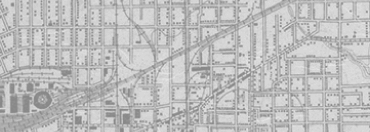


Back
Fallout Shelter sign
Black and yellow metal Fallout Shelter sign. Signs such as this were used to mark the location of fallout shelters for members of the public to use in the event of a nuclear attack. There are four small holes in each corner. Nothing is on the reverse.
Fallout Shelter sign
1961 - 1970
Metal
14 x 10 in. (35.6 x 25.4 cm)
The Sixth Floor Museum at Dealey Plaza Collection
2000.033.0001
Robert Blakeley, the man who designed the black and yellow Fallout Shelter sign, died in 2017. The story of his work on the sign during the Kennedy administration was included in his New York Times obituary:https://www.nytimes.com/2017/10/27/obituaries/robert-blakeley-whose-fallout-shelter-sign-symbolized-the-cold-war-dies-at-95.html- Lindsey Richardson, Curator of Collections
Fallout shelter signs like this one were commonplace on government buildings, schools and other facilities with approved public fallout shelters. According to the 1962 annual report of the Department of Defense, a total of 400,000 outside and 1,000,000 inside signs were manufactured and distributed. Although still a recognized symbol for fallout shelter, few today realize that there is meaning behind the configuration of the three triangle shapes. According to a March 1963 newsletter from the Department of Defense, the six points at the edge of the circle each hold individual significance. From that newsletter: 1) Shielding from radiation; 2) Food and water; 3) Trained leadership; 4) Medical supplies and aid; 5) Communications with the outside world; 6) Radiological monitoring to determine safe areas and time for return home. Rather than a frightening symbol, the Assistant Secretary of Defense for Civil Defense, Steuart Pittman, noted: "It is an image we should leave with the public at every opportunity, for in it there is hope rather than despair." A fallout shelter sign like this one can be seen on the side of the Dallas County Records Building in an image taken by Dallas Morning News photographer Bill Winfrey (2004.058.0222.0002). - Stephen Fagin, Curator

Fallout Shelter sign
Black and yellow metal Fallout Shelter sign. Signs such as this were used to mark the location of fallout shelters for members of the public to use in the event of a nuclear attack. There are four small holes in each corner. Nothing is on the reverse.
Fallout Shelter sign
1961 - 1970
Nuclear threat
Sign
Fallout shelter
Cold War
Kennedy, John F.
Department of Defense
Metal
14 x 10 in. (35.6 x 25.4 cm)
The Sixth Floor Museum at Dealey Plaza Collection
2000.033.0001
Robert Blakeley, the man who designed the black and yellow Fallout Shelter sign, died in 2017. The story of his work on the sign during the Kennedy administration was included in his New York Times obituary:https://www.nytimes.com/2017/10/27/obituaries/robert-blakeley-whose-fallout-shelter-sign-symbolized-the-cold-war-dies-at-95.html- Lindsey Richardson, Curator of Collections
Fallout shelter signs like this one were commonplace on government buildings, schools and other facilities with approved public fallout shelters. According to the 1962 annual report of the Department of Defense, a total of 400,000 outside and 1,000,000 inside signs were manufactured and distributed. Although still a recognized symbol for fallout shelter, few today realize that there is meaning behind the configuration of the three triangle shapes. According to a March 1963 newsletter from the Department of Defense, the six points at the edge of the circle each hold individual significance. From that newsletter: 1) Shielding from radiation; 2) Food and water; 3) Trained leadership; 4) Medical supplies and aid; 5) Communications with the outside world; 6) Radiological monitoring to determine safe areas and time for return home. Rather than a frightening symbol, the Assistant Secretary of Defense for Civil Defense, Steuart Pittman, noted: "It is an image we should leave with the public at every opportunity, for in it there is hope rather than despair." A fallout shelter sign like this one can be seen on the side of the Dallas County Records Building in an image taken by Dallas Morning News photographer Bill Winfrey (2004.058.0222.0002). - Stephen Fagin, Curator









